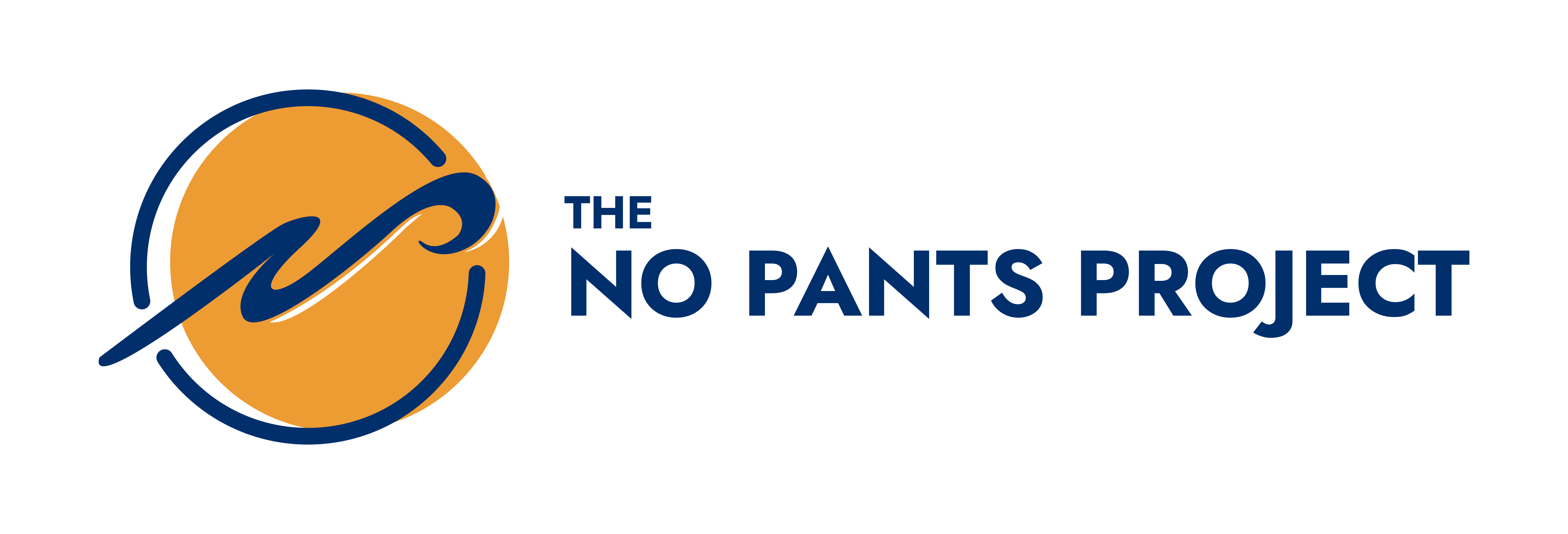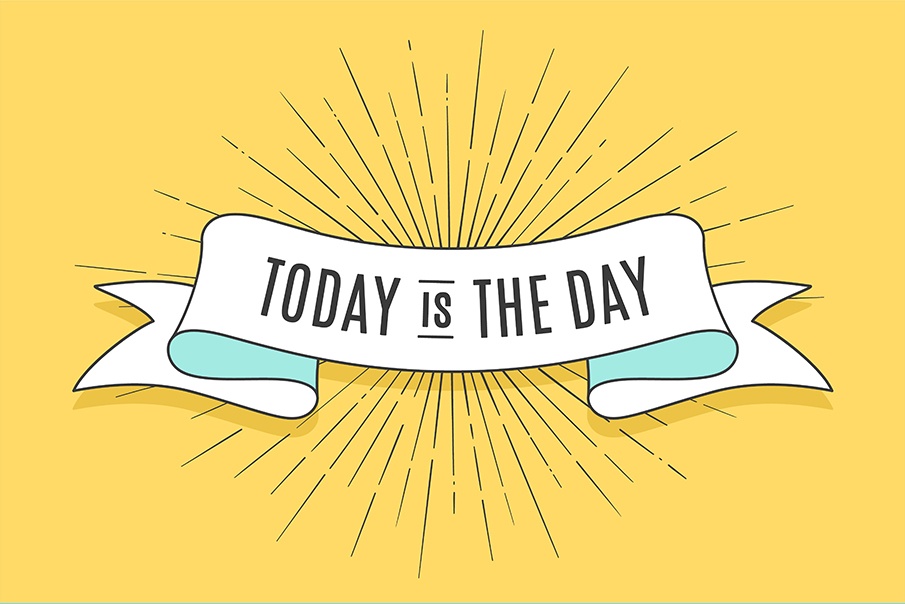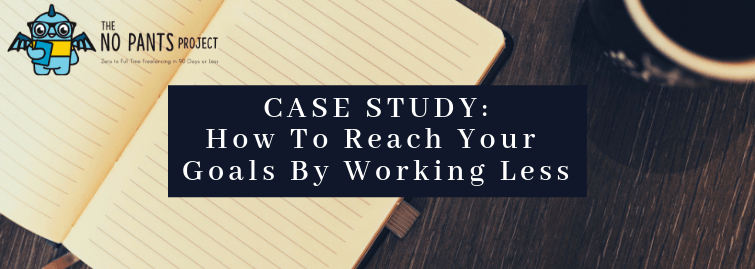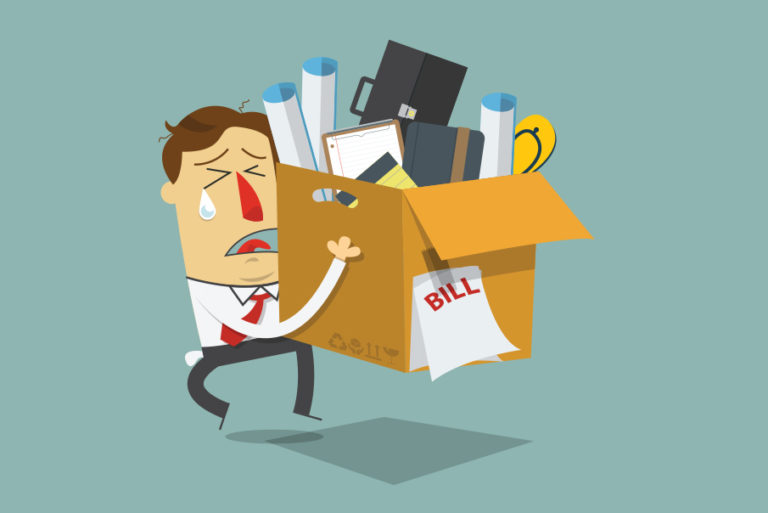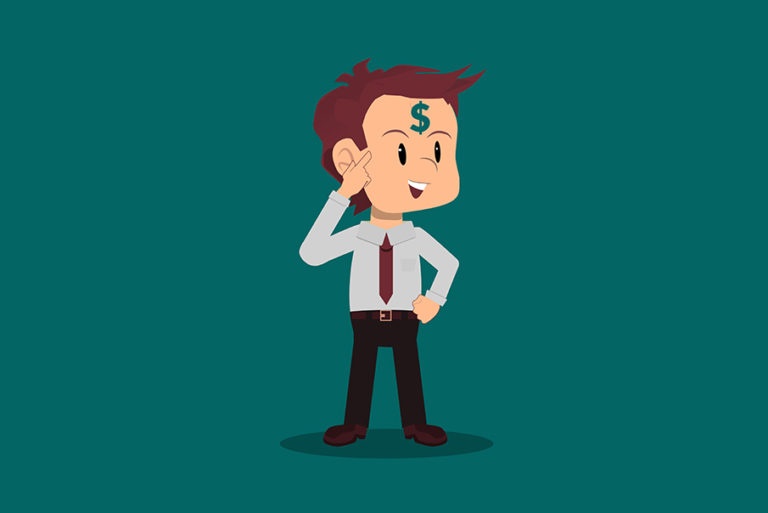If you’re like most people, you’ve probably allowed procrastination to keep you from getting started, from doing the things that you’ve wanted to do with your life.
After spending over a decade in the transformation economy, Mike Shreeve shares a core belief in this premiere episode of The No Pants Show podcast, concerning our life’s dreams and goals:
“Everyone can get most of what they want from life, and I believe they are fully capable of doing so.”
If this is true, why do some people achieve the unimaginable, while others continually settle for subpar?
The problem, Mike says, is not that some of us are incapable of achieving what we want.
The problem is that starting is a very real struggle.
Why Is Starting So Hard?
“Don’t confuse the complex with the difficult. Most situations are simple – many are just emotionally difficult to act upon.”
Starting something new is a challenge because everything you want is on the other side of…
work.
Even if you’re not after money, your goals are going to require effort.
Better relationships, better health, equality, and world peace all still require work if they are to be achieved.
And work isn’t all that fun.
In fact, our brains know that work isn’t fun and they are actually programmed to resist our efforts to change.
(To better understand how our brains are wired for resistance, read The War of Art by Steven Pressfield.)
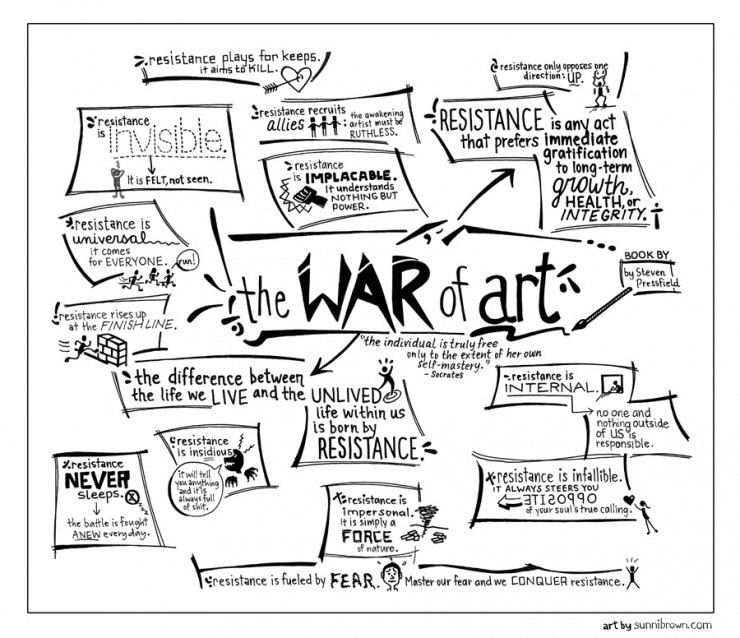
Mike says:
“We work against ourselves to get started on doing the work even though what we want is on the other side.
“That’s why getting started is the critical make it or break it moment in our ability to begin to achieve the things we want to achieve.”
Think back to a time where you felt a call to do something deep in your gut.
Some inner voice told you, “This! This is the thing I want to do!”
You probably felt some excitement.
Some clarity.
But maybe you didn’t take any action right away.
Getting started felt overwhelming.
Because of your difficulty with taking those first crucial steps, your motivation began to wear off.
The fire started to die.
You know what you wanted the end goal to be.
And you know that the longer you wait to get started, the further away that feeling of achievement you yearn for will appear.
Time passes, and you become less excited because it all seems so much harder than you had thought.
You start to question your desires.
You might even try to convince yourself that you didn’t actually care to achieve that thing in the first place.
Suddenly, you don’t know what you want, or who you are, or what path to take, and it’s all because you struggled with getting started on the work.
In contrast, people who seem to achieve things easily are very good at getting started.
They’ve mastered the ability to begin.
They don’t put action off, and because of their swiftness, they almost instantly see signs that assure them they are on the right path.
Mike says:
“Instead of their clarity dissolving, they are fueling the fire and it becomes easier as they go because of the feedback loops.”
With some awareness and practice, getting started can become less of a struggle against resistance and more of a naturally occuring habit that occurs every time you decide you want to go after something.
In order to help you brave change in the name of growth, Mike shares four obstacles to getting started that you need to have strategies for:
Getting Started Obstacle #1: Fear
“The more important a call or action is to our soul’s evolution, the more resistance we will feel toward pursuing it.”
Fear is the main killer of your ability to get started.
Mike says:
“Fear will rob you of nearly everything if you let it.
“Fear has the ability to strip you of everything that defines you and everything you love if you let it do so.”
Mike gives us the following example as a way fear keeps people stagnant:
In The No Pants Project, Mike teaches a very simple cold outreach process for getting clients.
This method requires no thinking, and no real technical skill.
The student simply needs to send messages to people who may be able to benefit from their services.
The problem is not that the process is difficult. It’s very easy.
What makes it hard is that the student is sending something to a stranger.
In their mind, the resistance says,
“What are they going to think of me?
“What if they don’t like me?
“What if they’re upset that I sent them a message?”
A mountain of fear is created.
This mountain can feel so hard to overcome, that it becomes impossible to send a cold email.
Some people will literally do anything else to convince themselves that they are keeping busy except for that one critical piece.
And why do we have fears like this, really?
Because we have decided that other people’s opinions of us are stronger than our own opinion of our self.
Isn’t that crazy?
This deep concern over the way another person views us keeps us stuck. Sometimes for life.
Maybe a No Pants student really does believe their dreams could come true.
But because of their fear, and the importance they place on other’s opinions, they contradict their own beliefs.
So, How Do We Stop Letting Fear Rule Us?
1) Stop putting importance on other people’s opinions.
It’s actually that easy.
Mike says:
“Stop consuming other people’s opinions.
“Try journaling instead.
“What do you believe, think, and find important?
“Stop scrolling and reading comments. Stop watching videos.
“Spend more time in introspective work and looking at yourself.
“Tip the balance in your favor. Care about your own opinion.”
To overcome fear, it’s important to take a good look at how much time you put in every day consuming the thoughts and beliefs of anyone but yourself.
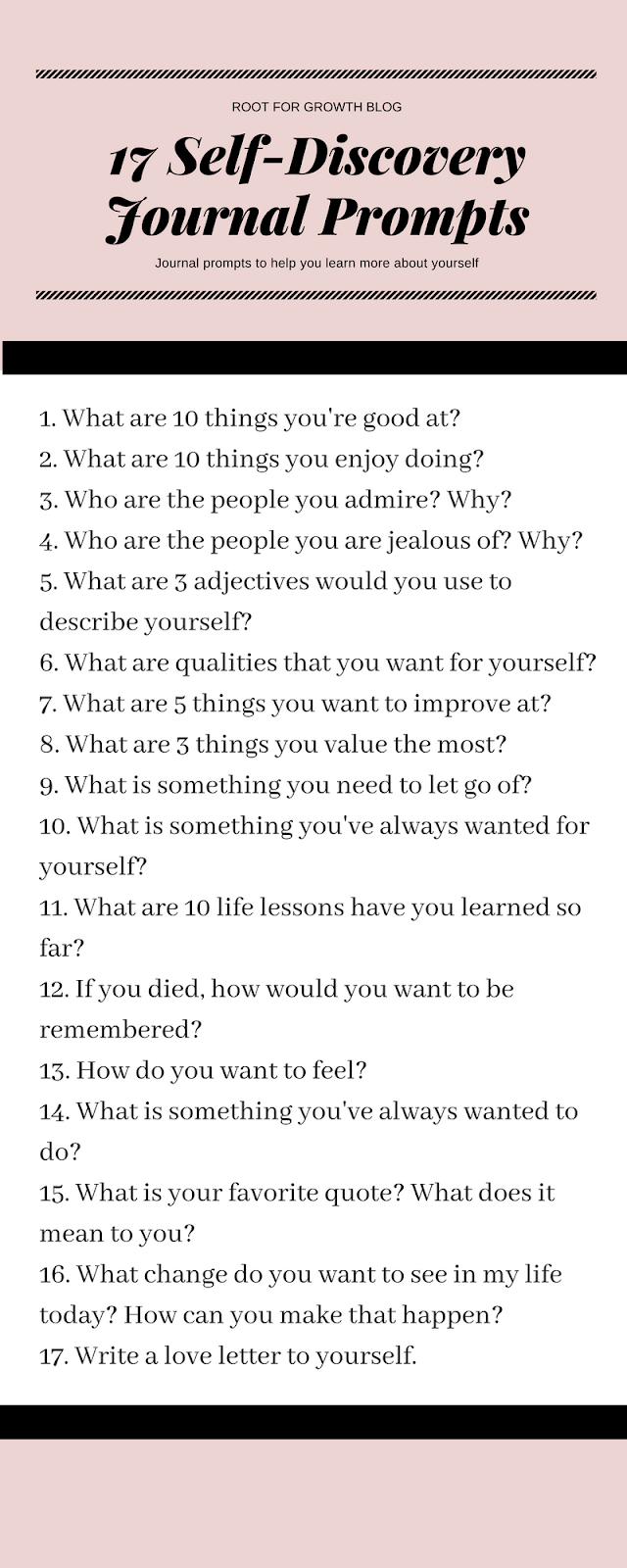
Mike says:
“If you don’t spend at least 30 minutes a day journaling it’s no wonder that you feel lost, confused, and have a deep fear of other people’s opinions.
“Nothing is wrong with you…you just haven’t spent the time to discover what you even want.”
2) Meditation, meditation, meditation.
Meditation is a tool that can help us disconnect from the feelings and thoughts of fear.
Mike says:
“If you want to be happy in today’s instant gratification society, it starts with 10 -15 minutes a day (of meditation).
“Let your mind have a break from assigning emotional value to everything that pops into your head.
“Meditation strengthens your ability to not make a big deal about every single thought.”
Fear is not going anywhere, but by mastering this ability you can empower yourself to overcome it.
Mike says:
“I am terrified to create this podcast episode.
“The difference is, I have had enough practice getting started, and I have been mediating long enough that I don’t assign meaning to the thought (of fear) that comes into my brain.”
If you aren’t sure where to begin with meditation, Mike recommends the Headspace app to help you get started.
3) Ask yourself, what will I lose if I let fear win right now?
Mike advises:
“I encourage you to turn this question into a habit when you begin to feel resistance.
“When you feel fear causing you to procrastinate, ask yourself what you are losing when you let fear win.”
When you get in the practice of asking yourself this, you will begin to see that fear is not helpful, and it’s not furthering you.
In today’s society, we have been conditioned to put an importance and an emphasis on fear.
Consider the 24 hour news cycle.
The internet.
The fiction you read, and the television you watch.
How many of those stories are good, happy, or pleasant?
We have been taught to put great value on fear, but by going through these exercises, we can begin to lessen the hold fear has over us.
It will then be easier to get started.
Getting Started Obstacle #2: Knowledge
“What we can or cannot do, what we consider possible or impossible, is rarely a function of our true ability. It is more likely a function of our beliefs about who we are.”
There are two aspects of knowledge that keep us from getting started:
1) We have too little knowledge and we need to get more information.
Mike says:
“I see a lot of people use this as a tool for procrastination. I am not saying to go run ads without training.
“Knowledge is good.
“But what most people are looking for is reassurance and not actual knowledge.”
Do you ever sit for hours, googling success stories, hoping for confirmation that the thing you’re thinking about doing is the thing you should do?
Imagine how much further along you would be if you spent that time learning instead.
Mike says,
“Don’t jump into stuff before you know what to do.
“Be practical.
“But when you feel you don’t have enough knowledge, go get more knowledge!
“Don’t worry about a guarantee if it’s going to work or not.
“The key is to go learn more, not to procrastinate with reassurances.
“You’ll never fully feel like you know for sure something will work.
“You’ll always have some doubt, otherwise you’re probably delusional.
“Doubt is a sign you’re a thinking person.
“But don’t let doubt control you.”
2) We have too much knowledge.
Too much knowledge can also be a problem.
When you know too much, you get shiny object syndrome and everything can seem like a good idea.
Mike says:
“Too much knowledge is seeing the holes in all the ideas, and you start to believe that something out there is perfect and you procrastinate.
“You can also overcomplicate things and lose your ability to work.
“Something as simple as sending a message becomes something that’s so confusing and so big with so many pieces that you tell yourself it’s too hard.
“People will take something so simple and over complicate it unnecessarily.
“They make it impossible for themselves to succeed.”
Too much knowledge can also make it hard for you to focus on the important things.
The No Pants Show podcast would have never gotten off the ground if Mike would have researched all of the “best podcast practices.”
Worrying about every single detail of the podcast would have caused him to talk himself out of it.
This article is not about mastery.
That’s a topic for a different time.
This is about how to get the ball rolling.
How to avoid procrastination and start moving towards the things you want.
Start now.
Adjust later.
Mike says:
“You need to wipe off the complexity and focus in on the simplest version of the thing you can start right now. “
Getting Started Obstacle #3: Resources
“Don’t wait for other things to change. First you must change so that you can make the best use of all that you’ve got.”
If you don’t have the money to invest into your business, don’t try to spend it.
Look for alternative ways to get the thing done that you want to get done.
Don’t spend time whining.
When he first began his freelancing business, Mike says:
“I was sleeping in a tent in Forest Park and I went to the public library.
“It’s not about the resources you have, it’s about your resourcefulness.
“(Lack of) resources is never an excuse to not get started and my own story prevents me from believing it’s an issue.
“Are you at a disadvantage because you don’t have money to start your business?
“YES!
“There is no level playing field.
“However, I don’t believe (lack of) resources is ever an excuse for not getting started.”
It’s all about your resourcefulness.
If you don’t have money, be prepared to trade more of your time to help you get your feet off of the ground.
But don’t let your lack of resources prevent you from getting what you want.
Getting Started Obstacle #4: Dopamine and Distraction
“If we let ourselves, we shall always be waiting for some distraction or other to end before we can really get down to our work. The only people who achieve much are those who want knowledge so badly that they seek it while the conditions are still unfavorable. Favorable conditions never come.”
Mike says:
“We live in a society in which dopamine is the primary goal of nearly all media and design in the world.”
By definition, dopamine is simply a chemical in our body that makes us feel good.
We experience it in a lot of different ways.
Certain foods, drugs, and physical pleasures all increase dopamine reaction.
This dopamine is base level programming.
It exists so humanity will continue to pass our genes along and survive.
You cannot will yourself out of its effects.
The problem is that very smart people use what they know about our biology to manipulate this chemical.
They intentionally cause the trigger and reaction we get from dopamine dumps in our body.
And these experts have infiltrated every part of our society.
They understand the science of satiation.
The food you eat is designed to cause euphoria from the dopamine process.
Your smartphone is a dopamine field.
Everything from the shape of the apps, to the way your notifications work is designed to keep you addicted to your device.
All of the features are created intentionally to keep the dopamine flowing into your brain.
But, this isn’t about you feeling good.
These experts are paid money because dopamine is the central actor in all addiction.
Heroine, alcohol, pornography – all of these things are reliant on dopamine response.
More research is suggesting that phone and social media use is as addictive as these harder drugs.

If you do not actively work against the designs that you interact with, getting started can be impossible.
Mike says:
“If you want to help an addict, you can’t just ignore the biology and physiology that’s going on.
“You can’t say, just get over it.
“That is such a poisonous thought because it’s a complete misunderstanding of what’s going on.
“It’s a physiological reaction going on in the brain.”
If you’re struggling to get started, what you may need is a dopamine rehab.
In traditional rehabilitation programs, the process involves removing the addict entirely from the toxic situation they were in.
They are put in a new environment.
Often, that environment is void of the things that stimulate dopamine.
How To Do A Dopamine Fast
If you are struggling to get started due to distraction, that distraction is occurring because you are craving dopamine!
Mike’s advice is to complete a fast.
For an entire day, abstain from your major dopamine triggers.
For you, maybe that’s Facebook, junk food, or texting.
Whatever you can personally link to a source of dopamine, fast it all at once.
This will likely be incredibly challenging.
You’ll need a pen and paper so you can write all of the thoughts and feelings as you begin to slip into withdrawals.
Mike says,
“This can be a very enlightening experience.
“I do it a couple times month and I’m working on expanding beyond a 24 hour cycle.
“My goal is a huge 7 day cleanse, where I can be completely disconnected.
“I kicked my soda habit, my caffeine addiction. My goal is to become free of this dopamine addiction that I have developed over the years.”
Why Is A Fast So Important?
Mike says:
“I want this so I can live a life where I can have an idea, and I instantly act on it. I’m not jumping around or distracted.”
Dopamine isn’t in work.
And everything you want is on the other side of work.
You have to understand if you’ve been living this life of addiction, it can be jarring to suddenly have to sit down and work where there is no dopamine.
Mike says:
“The people trying to make the transition to owning their own business struggle with the fact that it’s not all feel good.
“What happens is their reaction is doubt.
“They have a misunderstanding of what’s actually going on.
“They are addicted.
“The fast is a great way to offset the life of a dopamine addict and see what it’s like for one day where you have it under control.”
What To Start Today
As we have worked hard to convey, making a habit of starting is one of the most important things you can do for your business, and your life.
In order for getting started to become a regular practice, remember to have awareness and methods for these four obstacles:
-
Fear
Stop putting importance on other people’s opinions, practice meditation, and regularly ask yourself, “What will I lose if I let fear win right now?”
-
Knowledge
If you have too little knowledge, don’t waste time looking for reassurances. Go get more knowledge! But don’t procrastinate or over complicate your task by trying to learn too much before you begin.
-
Resources
Lack of resources is never an excuse to not start. If you don’t have the money, be willing to trade more of your time and get resourceful.
-
Dopamine and Distraction
Conquer the distractions in your life with regular dopamine fasting.
Don’t forget to listen to the full premiere episode of The No Pants Show podcast here.
You can rate and subscribe to the show on iTunes, and find us on your favorite podcast app here.
If you need help getting started on your dream freelancing business, learning how to overcome limiting beliefs, and discovering your superpower, we would love to have you join us in The No Pants Project.
